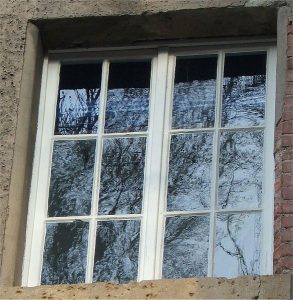If you’ve never heard of float glass you’ve definitely seen it. That’s because most windows and mirrors are produced using this versatile glass, But what is it, and how is it used to create the best double glazing?

Image Credit
What is float glass
This inorganic product is perfectly smooth with no imperfections, making it ideal for window glass and to be transformed into other glass products – https://www.telegraph.co.uk/finance/2933138/History-of-Float-glass.html. First produced in the 1950’s by Sir Alastair Pilkington, float glass is produced by literally floating the molten glass on a bed of molten tin where it creates a uniform and level surface.
Once the glass ribbon is cooled, the annealed glass can be cut to size and used for applications ranging from laminated to safety glass. With its qualities of clarity and uniformity, there’s no wonder float glass is so widely used, from car mirrors in Aberdeen to double glazing in Gloucester.

How is float glass used?
Anywhere that glass is required, you’ll find float glass. That’s down to its flexibility and malleability when it’s still in a heated, liquid state. That’s why float glass is found in mirrors, single and multi-pane glazing and car glass. This versatile product can be coated with silver to create flaw-free mirrors or incorporated directly into fine furniture.
There are no flaws or imperfections in float glass, unlike organic forms of glass, making it the smart choice for windows and doors, whether you’re replacing single glazed panes in an historic building or installing brand new double glazing in Gloucester.
Different types of float glass
Float glass is extremely popular when used for commercial glazing when it is usually subjected to a toughening process to create safety glass. With its high degree of transparency, this easy to clean glass is also a favourite for display cases or it can be tinted using different colouring agents to create glass that has a number of different properties including UV transmission, insulation properties and light and heat transmission.
Float glass is also the ideal choice for multi-pane glazing including double and triple glazing units. The glass in these applications can also be toughened and tempered, laminated or used to create soundproof glass. Reflective glasses with a metallic coating can also be created to use as a design element, for light transmittance and to protect privacy, making float glass the most versatile glass around.




